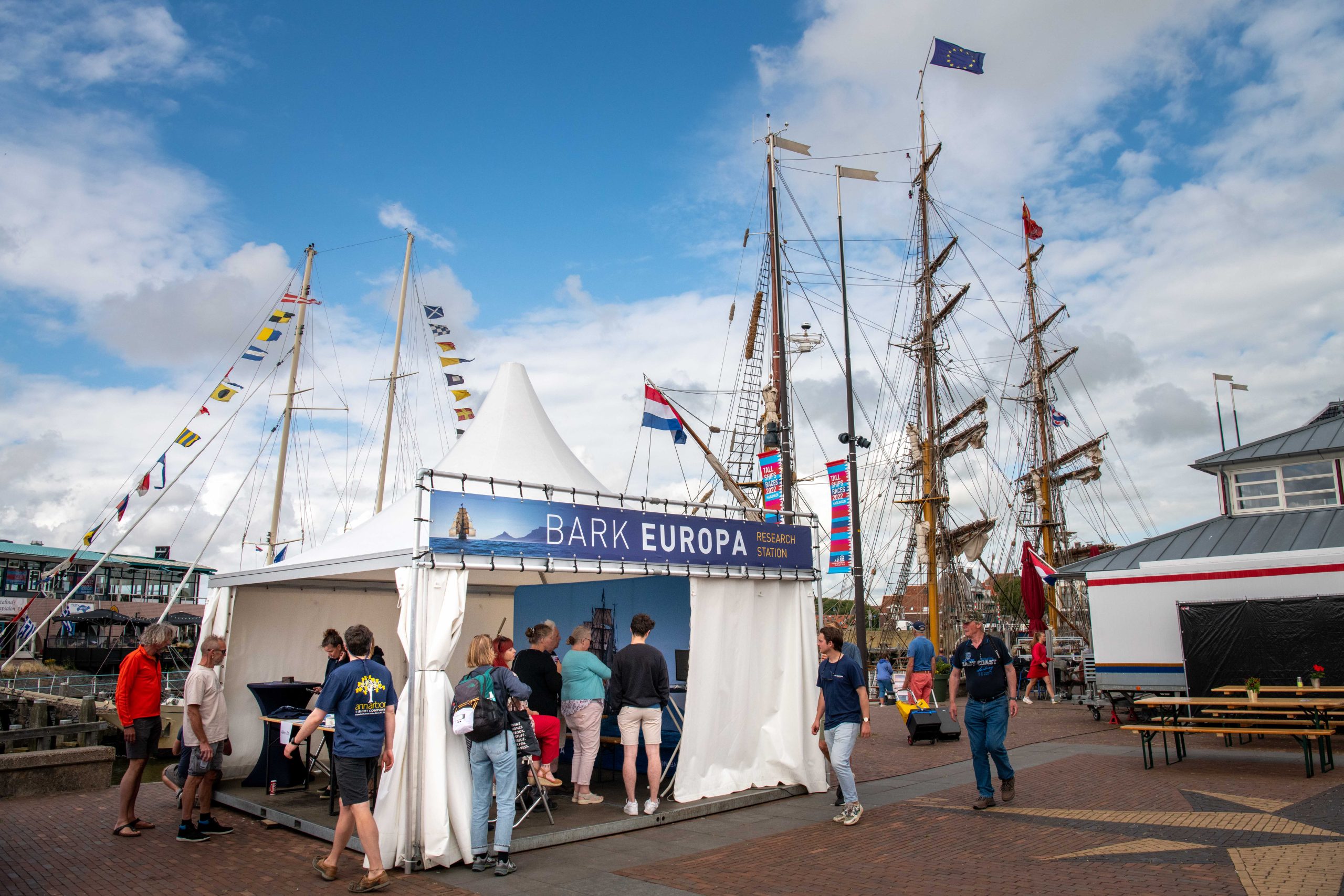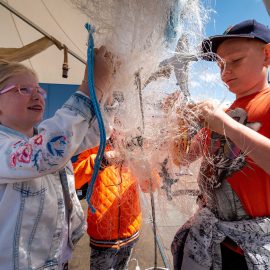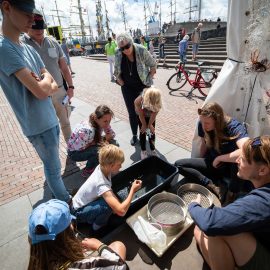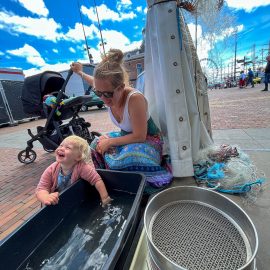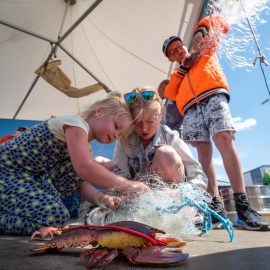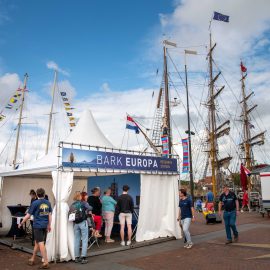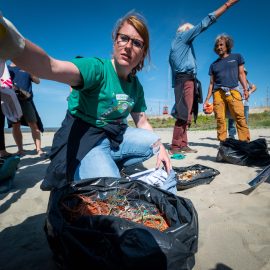Written by Karl Beerenfenger, our education partner in the Netherlands, who recently sailed with tall ship Bark EUROPA from the Netherlands to Belgium and back. The journey was about sailing and sustainability, presenting also the mission and work of Healthy Seas.
Impressive square-rigged sailing ship Bark EUROPA, built in 1911 as a lightship, has been taking people out sailing the world’s oceans since 2001. Every year, the ship wanders the waters from Europe to Antarctica and from South Africa to the Azores. Next to enjoying our beautiful wilderness, the EUROPA invites researchers with their own projects on board, offering scientists, crew and guests (voyage crew) a better understanding of the environmental issues the oceans are facing. No better place to get motivated than in the field, ask any of the volulnteer divers that make the Healthy Seas mission possible.
This year, the EUROPA participated in the Tall Ships Races, an annual maritime event that has been bringing together many international tall ships since 1956. I was invited to join the leg from Harlingen (Netherlands) to Antwerp (Belgium) as a plastic researcher and expert, bringing seven years of experience as a plastic researcher and developer of campaigns and programs to tackle plastic pollution.
During the journey at sea, I gave presentations and lead interactive workshops on plastic pollution. In both ports, crew of the ship set up a tent with a ‘research station’ on the quay. Visitors were invited to look at plastics and plankton under microscopes, while researchers explained the work they do on board. Children were challenged to collect microplastics from a large container with water and to untangle marine animals (made from plastic – it is indeed a handy material) from ghost nets. Like in primary school classes, participating youngsters were asked to name the animal they freed, offering us a chance to teach them about both our beautiful marine life and the – sometimes deadly – threat they face by discarded or lost fishing nets.
In addition, in the port of both Harlingen and Antwerp, we organized cleanups. Dolly rope (small plastic lines from nets from bottom trawlers) and larger (pieces of) fishing nets were among the most found items. Antwerp had a clear ‘winner’ though: the shore of the river Schelde was filled with nurdles or pellets. Or as waterlovers like to call them: mermaid tears. There might have been tens of thousands of them. This base product for all plastic items are produced and distributed from the port of Antwerp and unfortunately end up in our waterways and on our shores in massive amounts. Only government and industry can fix this.
The watersports community plays an important role in raising awareness about the beauty of our oceans and the threats they are facing. Experiencing pollution and destruction first-hand, sailors, divers, surfers and many others, are motivated to involve their surroundings in their striving for a cleaner planet. As prominent oceanographer Carleton Ray said in 1968:
“We still view the sea as a limitless wilderness, which of course, it is not. We view the sea apart from the earth. We call this planet Earth, yet this is the only planet that has a sea. I think we should have called it ‘sea., of course, but the naming is already done.”
I’m pretty sure Planet Sea, or Planet Ocean, would love to see water lovers unite.



